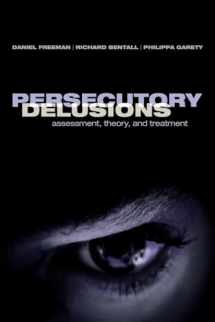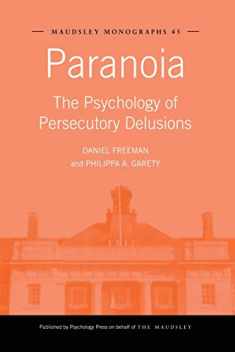
Persecutory Delusions: Assessment, Theory and Treatment
Book details
Summary
Description
Paranoia is the fear that others intend to cause you harm. It occurs most dramatically as delusions of persecution in conditions such as schizophrenia, but it is related to suspicious thoughts that occur in some 10-20% of the general population. Typical concerns might be that people are trying to harm you, saying bad things behind your back, deliberately irritating you, or conspiring against you. It is one of the most significant psychiatric problems, and increasingly, researchers and clinicians have begun to focus on understanding paranoid experience. In this landmark publication, the three major authorities in the field bring together the current knowledge about the assessment, understanding, and treatment of persecutory delusions. Leading experts in cognitive psychology, neuropsychology, psychiatry, social psychiatry, neuroimaging, and neuroscience explain their perspectives on paranoia. Pharmacological, cognitive, and family interventions are comprehensively reviewed, and personal accounts of paranoia are included.


We would LOVE it if you could help us and other readers by reviewing the book
Book review




